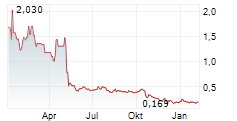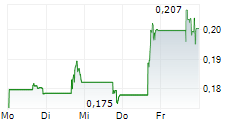
ROCKVILLE, Md., Dec. 05, 2024the completion of target enrollment into the multinational VIRAGE Phase 2b clinical study evaluating intravenous VCN-01 in combination with gemcitabine/nab-paclitaxel as a first line therapy for PDAC patients.
Type D meetings are focused on a narrow set of issues that are used to discuss issues at key decision points to provide timely feedback critical to moving a drug development program forward. The FDA advised that the on-going VIRAGE Phase 2b study should not be expanded into a Phase 3 study; rather, the optimal path forward for the VCN-01 PDAC program is to conduct a stand-alone Phase 3 study of VCN-01 with gemcitabine/nab-paclitaxel. The FDA provided general agreement with Theriva's proposed design for a Phase 3 clinical study and indicated that inclusion of additional standard-of-care chemotherapy for PDAC was not necessary as it would complicate the study design and analysis. The FDA meeting also highlighted the FDA's preferences regarding certain statistical elements of confirmatory clinical studies, including methods for sample size estimation and the study population(s) used for data analysis.
"The FDA's advice on key elements of a potential confirmatory Phase 3 study evaluating VCN-01 plus gemcitabine/nab-paclitaxel as a first-line treatment for metastatic PDAC patients is critical as the VIRAGE study has entered final patient follow-up and we are actively planning the next steps in VCN-01 development," said Steven A. Shallcross, Chief Executive Officer of Theriva Biologics. "The feedback from the FDA and European regulatory agencies will facilitate the design of a Phase 3 study protocol that is expected to maximize our ability to provide a new therapeutic option to patients suffering this terrible disease."
An additional meeting with the FDA will be requested after the completion of the VIRAGE study to discuss the details of the proposed confirmatory Phase 3 study protocol.
About Pancreatic Ductal Adenocarcinoma
Cancer of the pancreas consists of two main histological types: cancer that arises from the ductal (exocrine) cells of the pancreas or, much less often, cancers may arise from the endocrine compartment of the pancreas. Pancreatic ductal adenocarcinoma ("PDAC") accounts for more than 90% of all pancreatic tumors. It can be located either in the head of the pancreas or in the body/tail. Pancreatic cancer usually metastasizes to the liver and peritoneum. Other less common metastatic sites are the lungs, brain, kidney, and bone. In its early stages, pancreatic cancer does not typically result in any characteristic symptoms. In many instances, progressive abdominal pain is the first symptom. Therefore, in most cases, pancreatic cancer is diagnosed in its late stages (locally advanced non-metastatic or metastatic stage of the disease) when surgical resection and possibly curative treatment is not possible. It is generally assumed that only 10% of cases are resectable at presentation, whereas 30-40% of patients are diagnosed at local advanced/unresectable stage and 50-60% present with distant metastases.
About VCN-01
VCN-01 is a systemically administered oncolytic adenovirus designed to selectively and aggressively replicate within tumor cells and degrade the tumor stroma that serves as a significant physical and immunosuppressive barrier to cancer treatment. This unique mode-of-action enables VCN-01 to exert multiple antitumor effects by (i) selectively infecting and lysing tumor cells; (ii) enhancing the access and perfusion of co-administered chemotherapy products; and (iii) increasing tumor immunogenicity and exposing the tumor to the patient's immune system and co-administered immunotherapy products. Systemic administration enables VCN-01 to exert its actions on both the primary tumor and metastases. VCN-01 has been administered to 142 patients to date in Company- and investigator-sponsored clinical trials of different cancers, including PDAC (in combination with chemotherapy), head and neck squamous cell carcinoma (with an immune checkpoint inhibitor), ovarian cancer (with CAR-T cell therapy), colorectal cancer, and retinoblastoma (by intravitreal injection). More information on these clinical trials is available at Clinicaltrials.gov.
About Theriva Biologics, Inc.
Theriva Biologics.
Forward-Looking Statement
This release contains forward-looking statements within the meaning of the Private Securities Litigation Reform Act of 1995. In some cases forward-looking statements can be identified by terminology such as "may," "should," "potential," "continue," "expects," "anticipates," "intends," "plans," "believes," "estimates," and similar expressions, and include statements regarding the feedback from the FDA and European regulatory agencies facilitating the design of a Phase 3 study protocol; the protocol maximizing the Company's ability to provide a new therapeutic option to patients suffering pancreatic cancer. Important factors that could cause actual results to differ materially from current expectations include, among others, the Company's ability to effectively design the Phase 3 study protocol; the Company's and VCN's ability to reach clinical milestones when anticipated, including the ability to continue to enroll patients as planned, generating positive clinical data that establishes VCN-01 may lead to improved clinical outcomes for patients with PDAC and other solid cancers; the Company's and VCN's product candidates demonstrating safety and effectiveness, as well as results that are consistent with prior results; the ability to complete clinical trials on time and achieve the desired results and benefits; the ability to obtain regulatory approval for commercialization of product candidates or to comply with ongoing regulatory requirements, regulatory limitations relating to the Company's and VCN's ability to promote or commercialize their product candidates for the specific indications, acceptance of product candidates in the marketplace and the successful development, marketing or sale of the Company's and VCN's products, developments by competitors that render such products obsolete or non-competitive, the Company's and VCN's ability to maintain license agreements, the continued maintenance and growth of the Company's and VCN's patent estate, the ability to continue to remain well financed, and other factors described in the Company's Annual Report on Form 10-K for the year ended December 31, 2023 and its other filings with the SEC, including subsequent periodic reports on Forms 10-Q and current reports on Form 8-K. The information in this release is provided only as of the date of this release, and Theriva Biologics undertakes no obligation to update any forward-looking statements contained in this release on account of new information, future events, or otherwise, except as required by law.
For further information, please contact:
Investor Relations:
Chris Calabrese
LifeSci Advisors, LLC
ccalabrese@lifesciadvisors.com
917-680-5608
Source: Theriva Biologics, Inc.



